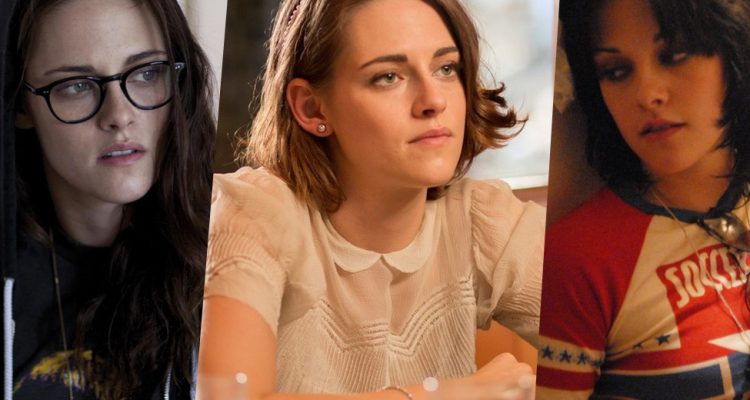It is likely that by December, the year will have seen the release of six Kristen Stewart movies: Tim Blake Nelson‘s “Anesthesia,” Kelly Reichardt‘s “Certain Women,” Olivier Assayas‘ “Personal Shopper,” Ang Lee’s “Billy Lynn’s Long Halftime Walk,” Drake Doremus‘ “Equals” and Woody Allen‘s “Café Society,” of which those last two open this weekend. Of the five we’ve already seen (all bar Ang Lee’s), not all are brilliant, and at least one is actually quite bad (spoiler: it’s “Equals”), but Stewart has been singled out for praise in every one. And by and large, they mark an enviable slate of mainstream auteurs, arthouse favorites and indie darlings to have worked with over such a short period of time. So outside her on-point red-carpet appearances and the abiding interest that so many people appear to take in her personal life, it’s safe to say that Stewart is evolving into one of our most exciting, and busiest, young actors.
More specifically, what this tireless recent work ethic has meant is that in just four years since the release of the last installment, Stewart has put a lot of water between herself and the “Twilight” franchise. Enough, at least, that we got through an entire paragraph of intro before mentioning it — something that would have probably been unthinkable even a year ago. But as admirable as it is to have almost entirely purged off the taint of compromise that came with being Bella Swan for four years, the “Twilight” series has indelibly altered the way we think about Stewart and the path she has chosen for herself since.

A hefty and vocal segment of her fanbase was forged in the hormonal crucible of the “Twilight” phenomenon, which encouraged among young female filmgoers a frankly depressing one-to-one identification with her portrayal of a sparkly vampire’s virginal paramour. That was only fueled further when Stewart dated her co-star, Robert Pattinson. It’s immensely understandable — after all, you often meet the people you date at work, and no one who has seen any of the five “Twilight” films can mistake them for anything other than work — but the K-Stew/R-Patz narrative was an absolute bugger for a young woman trying to assert her value as an actress rather than a celebrity.
That’s not to play the violins for poor harangued millionaire megastar Kristen Stewart too loudly. While there are doubtless many unpleasant side effects, becoming pretty much the biggest star that the modern era of obsessively tribal, social-media-fueled fandom has created has its benefits, too. It has put her hugely in demand as an actor who can represent an entire millennial generation; it has put her in a position where she gets to choose her collaborators and her upcoming projects; and it has even, in some of her best subsequent roles, provided a kind of metatextual backdrop off which she can play rather brilliantly.
She seems to be improving and expanding and becoming more comfortable with herself role after role, so here, at the mid-point of a massive year for the actress, we thought we’d look back at her career, which is actually as old as the century. Here are seven great Kristen Stewart performances to celebrate if you’re already a fan, and seven ways to forgive her for becoming famous off the back of the cinematic equivalent of an expired box of Pop-Tarts if you aren’t.

“Café Society” (2016)
If the general response from Cannes is anything to go by, future lists like this may well feature Stewart’s reunion with “Clouds Of Sils Maria” director Olivier Assayas, “Personal Shopper,” as the preferred of her two Cannes 2016 appearances. But while obviously boasting less arthouse cred, her performance in the more mainstream, more straightforward, fluffier Woody Allen film “Café Society” may well be the more impressive. What’s really remarkable about Stewart here is how she transcends Allen’s writing of the character — Vonnie is yet another of his young ingenues involved, as we discover, with a much older man. But with Stewart in the role, Vonnie, who is also the object of affection for Bobby (Jesse Eisenberg on Allen stand-in duty), becomes far more interesting than the recent run of Emma Stone and Scarlett Johansson characters. It’s because, while Stewart is luminous throughout, and especially flattered by Vittorio Storaro‘s gorgeous cinematography and Suzy Benzinger‘s fabulous costumes, there is something genuinely ambivalent and complicated about her charisma. She is not just pretty; she has a slightly mysterious reserve and an aura of self-sufficiency that means that even though her eventual arc is about which of her male suitors she will choose (and she is only a supporting character, really), we get the sense of her as the center of her own universe. “Café Society” is one of the most enjoyable of Allen’s recent baubles; had it actually been more about Stewart’s Vonnie, it could have been great.

